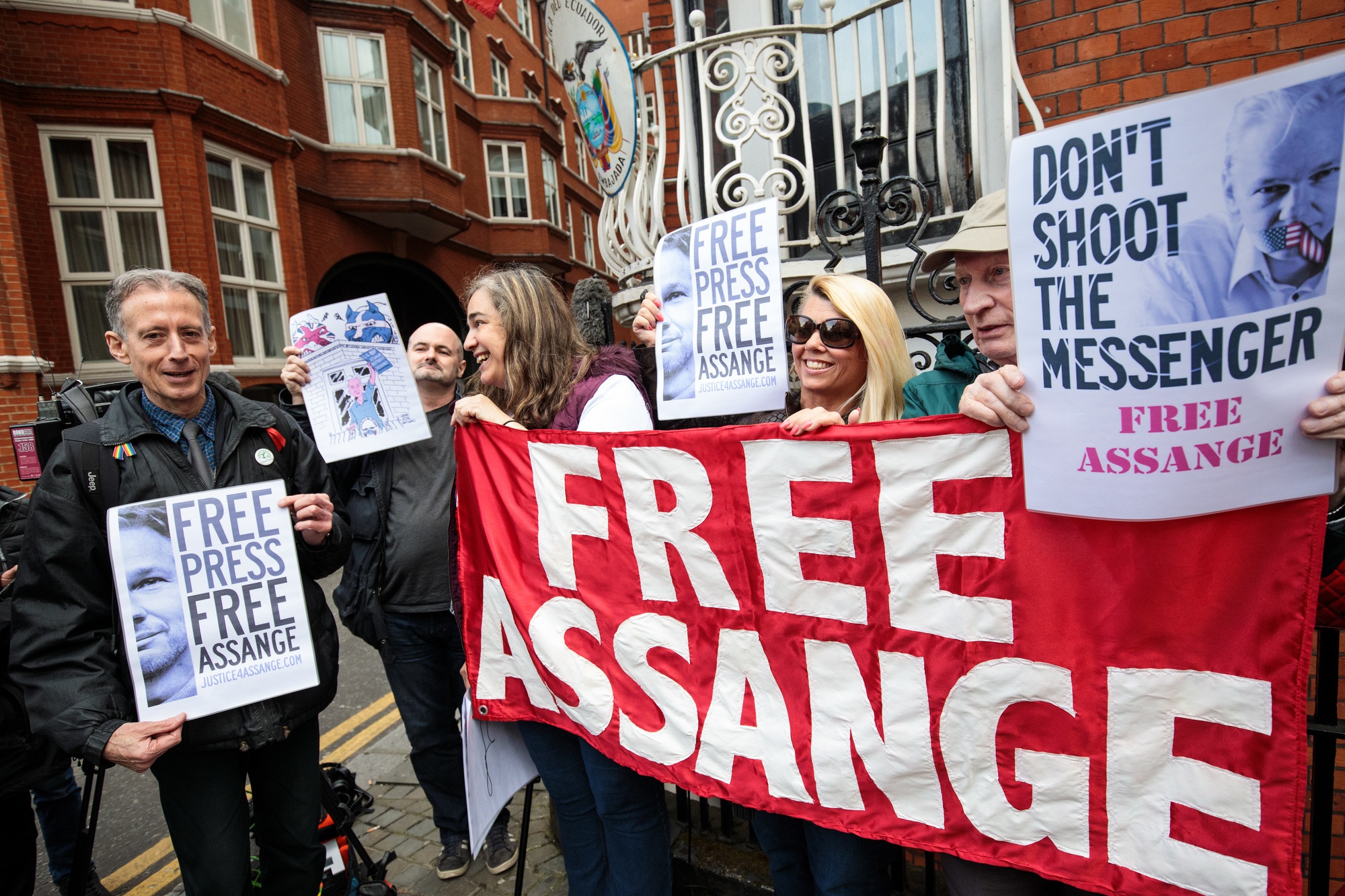Julian Assange: still shut in the Ecuadorian Embassy after all these years (Jack Taylor/Getty Images)
When people talk about the speed of change, it is worth considering how much can change in only a few years. In six years, for instance. How different things were, back in 2012, when Julian Assange walked into Ecuador’s London embassy and claimed asylum. Since then, much has changed, but two things in particular have had a direct impact on Mr Assange and his support-base – and have also highlighted the tenor of our times.
I met Assange at a public debate in 2011, the year before his self-imprisonment, when he had one broad type of supporter: the anti-West left. It consisted of those portions of the Left who were not merely critical of specific American or British policies, but saw in countries such as the US and Britain the representation of all that was wrong in the world.
From the moment he leaked the video of an American airstrike gone wrong under the title “Collateral murder”1, Assange became a hero to anti-war voices and their wider movement. After releasing inadequately redacted documents detailing precise operational details from the US-led stabilisation effort in Afghanistan2, he widened that support (not least through his collaboration with The Guardian, which gave him some mainstream credibility).
Yet it remained hard to find anyone outside the fringes of the anti-American left who supported him. In fact, allies fell away at an extraordinary rate as they discovered Assange’s harder edges. His Wikileaks colleague, Daniel Domscheit-Berg, grew concerned, parted company and then wrote a lengthy expose3 on his former friend after being shocked by Assange’s lack of concern for the lives he had put at risk through his mass-leaks – all those Afghans, for example, who had cooperated with Allied forces.
In the following years, with Assange cloistered in the Ecuadorian Embassy, the script stayed the same. When Edward Snowden produced the next largest release of American security secrets, in 2013, Assange and his “organisation” boasted of having helped facilitate Snowden’s flight from American justice and move to Moscow. It was clearer than ever that the main aim of Wikileaks was to expose the intelligence secrets of America (and by extension her allies, including Britain) and make them so transparent as to become effectively unworkable. But why had no other global powers been treated in a similar way? How was it, I asked Assange to his face in 2011, that the secrets of the Russian government never seem to be on his agenda.
Answer came there none.
Then, something remarkable happened. In the weeks before the 2016 US election, Wikileaks released a massive data-dump of documents from the Democratic National Committee4 These showed the underhand and nefarious means by which Hillary Clinton’s campaign had undermined her opponents in the party and engineered a smooth run to the nomination.

 Main Edition
Main Edition US
US FR
FR







Join the discussion
Join like minded readers that support our journalism by becoming a paid subscriber
To join the discussion in the comments, become a paid subscriber.
Join like minded readers that support our journalism, read unlimited articles and enjoy other subscriber-only benefits.
Subscribe